#andor meta
Text
Just realized why the colors of the rebellion are orange and white.

They’re fucking prison colors. The fucking rebels reclaimed colors the Empire uses to strip people of their lives and identities, and turned it into a symbol of motherfucking hope.
I love this fucking show.
8K notes
·
View notes
Text
godddd something fucking Excellent about Andor was how much it showed the diversity of experiences and customs among Humans!!! Star Wars is usually so allergic to showing us any meaningful cultural context, to the point where all humans feel very monolithic (with exceptions to the rule like Mandalorians), and Andor said fuck that!!!!
The people of Andor are individuals, yes, but they come from communities with customs and cultures and distinct ways of living that grant them full inner lives, and diverse, wonderful viewpoints that affect their choices at every turn.
Chandrillans have marriage ceremonies that are very culture specific and are not understood or practiced by people outside of the planet! Ferrix has intricate percussive rites and funerary rituals that mix ashes with brick to build the foundations of the city on those who lived in it and loved it!!!! Kenari has its own language, its own colorful clothing and weapons!!! The Aldhani people have a plot-relevant ceremony of celebrating the celestial marvel of Mak-ani bray Dhani!!!!
There's nuances to every group of people! Every heritage has MEANING, it has weight and it colors the lives of the people who it belongs to, and that's so, so beautiful and important to the language of the story!!! It stands apart from the Empire, which forces unnatural order and conformity upon the land and people at every turn.
It's a breath of fresh air that the characters of Andor are given the space to have these rites, these ties of belonging, these beautiful, organic things about them. It creates a backdrop of realistic, diverse experiences across planets, and it emphasizes the cruelty and horror of the Empire's fascism, its spite towards people's homes and clothes and beliefs. It makes a point of rounding out the Star Wars universe in ways that we rarely get to see this much of, and it interweaves that lore into the wider narrative gorgeously!!! I am so so grateful that this show exists
#andor series#andor show#andor#star wars#andor meta#star wars meta#ferrix#aldhani#kenari#chandrilla#mossy speaks#the trope of 'humans as a monolith but in space' has always irked me about sw#bc humans arent a monolith irl and its annoying to see that just pasted into a fantasy (made by white ppl)#so this show was just. ugh it was so good#thank you diego luna. thank you tony gilroy
652 notes
·
View notes
Text
I’m thinking a lot about how Andor as a show opposes a lot of the ideas of the Jedi code, and I’ve seen a few people put their thoughts on the lines about trying, so I thought I’d toss my brain in the ring
“Do or do not, there is no try”: a 1983 message about motivation and taking control of your own motivation and purpose. Do nothing by half measure, you have to have intent to succeed or you’ll never make it. In a movie that has been officially stated to be anti-war commentary about the protests against the Vietnam war, it makes sense that this would have a double meaning for viewers. Given by a wise old master to a young man as passing along wisdom.
“Remember this: try”: a 2022 message in a time where way more people feel absolutely hopeless about the state of the world. No matter how dismal you think it might be, you can make a chip against the despair in the world. If you just try a little, make an effort, it will help. In a show that’s blatantly anti fascist and anti capitalist, it’s clearly meant to be a message that just a little does something, even if it all seems futile. Said by a young rebel in a manifesto that he’s writing against the fist of the Empire.
Obviously this is a good amount of nonsense, it’s currently past 2 am and I’m kinda rambling, but my god. My god. This show has taken over my mind entirely
#I have even more thoughts on this#this is one of the shows that inspires me to write about it#andor#andor spoilers#andor meta#cassian andor#return of the jedi#yoda#star wars#star wars andor#sw andor#andor series#karis nemik#Jedi
903 notes
·
View notes
Text
really haunting call backs in andor: the explicit repetition of the idea that no one outside of narkina 5 knows about narkina 5 because no one survives narkina 5, now, and lives to tell the tale. and then in episode 1 of andor timm casually mentions the “shipment from wobani,” which we know from rogue one is another imperial death camp. how fucking many of them are there, and to what extent do galactic citizens- especially bootlickers like timm- just. live with this knowledge. how many of the parts that cassian and bix smuggled at the start of the show were made by prison labour?
911 notes
·
View notes
Text
I think what Andor does well and what sets it apart from the rest of the Star Wars universe, is that it’s very literate about how entities like the Sith and Jedi ultimately uphold or bring down societal structures. The emperor can have as many superpowers as he wants, but at the end of the day, the empire is nothing without its bureaucrats, its administrators, and its military and prison industrial complexes. In a parallel vein, it represents the triumph of the rebellion as something that happens less because a farm-boy had divinely-ordained superpowers and more because of its ability to mobilize effective civil resistance. To pit characters like Luthen and Mothma against the emperor; to contrast them and to draw comparisons, and on a certain level, make them equals, has nothing to do with their ability to use the force. It’s about their ability to wield apparatuses to reshape the galaxy in their own designs.
The will of the galaxy through the force is ever present of course, but there’s something much more empowering about such a supernaturally oppressive figure such as the emperor being toppled by the chess moves of normal people. It makes me think that we don’t need Skywalkers to solve our problems, we need mobilization of ordinary folks. Its a rejection of great-individual history and an endorsement of solidarity.
#andor show#andor#sw andor#Star Wars#Star Wars critical#Star Wars meta#Andor meta#Andor 2022#rogue one#rebelcaptain
222 notes
·
View notes
Text
okay I think it was suuuuuuuuch a brilliant thing to have Luthen witness Maarva's posthumous speech and the uprising it caused; and his stunned reaction. and i don't think it's any coincidence that Maarva's speech stressed the importance of community, she herself having been a prominent and beloved figure within hers. Luthen is such a vital figure in the rebellion and he makes such crucial decisions and holds so many lives in his hands and seemingly discards them just as easily; and we already hear it from him earlier in episode 10, of the horrible actions he resorts to all for the sake of trying to create a better galaxy that he knows he won't live to see. but i think he forgets the side of rebellion that Maarva and Nemik both talk about, and that's so perfectly illustrated in this episode; the fact that rebellion is community. it is millions of "random acts of insurrection occurring constantly throughout the galaxy". rebellion can happen anywhere, can be done by anyone, even the most galactically 'insignificant'. rebellion is the decision to try. and I'm so curious to see where this takes his character in the next season.
#i don't know if this makes any sense lmfaoo if it doesn't please don't mind me i got very little sleep last night#andor#andor meta#andor spoilers#luthen rael#maarva andor
411 notes
·
View notes
Text
The subtle character building in Andor is just so good.
We get a sense of who these people are, what they have gone through and what they stand for through small gestures, expressions and dialogue.
Cassian of course is the main example of this. It might seem like we don't get much of our titular character. He is mostly quiet and doesn't have a robot to tell his thoughts to any more. But who he is and what he is thinking is very clear.
He is smart and a quick learner. He is a very good observer. Cassian notices things, in a way that makes it useful for later. He knows who uses which hand. He knows the unspoken rules of operating that cargo thing. He recognizes the device that Karis is using and shows genuine interest.
And that all makes sense. The first scenes we see of young Cassian is him observing the leader of the group of children and imitating her. And after he was abducted, he had to adapt quickly to a new environment.
And this isn't punctuated with a quip or a joke. Cassian doesn't wink and say "I'm a quick learner." We get shown this through his interactions.
He is also on edge and out of his depth, which he tries to hide, even if he calls out the others on being afraid. And again, this isn't thrown in our face, but it is through his behaviour. How he jumps when they touch him or his stuff. His disbelief at the holes in their plan.
And Cassian cares, about the group and the cause, even though he says he's only in it for the money. He accepts the apology. He praises Karis' model. He praises cinta's healing skills. He listens carefully to the philosophy. He gives suggestions but doesn't overstep boundaries.
And I love that so much
#cassian andor#andor meta#andor#star wars#this really shouldn't be so unique but here we are#I love this show#it was made for me
594 notes
·
View notes
Text
The ISB is objectively evil but damn if they don’t do a good job of sprinkling in moments where you feel Dedra’s own struggle against oppression. Misunderstand me correctly, I do not condone anything she lives for or acts on, and her own privileges are aplenty.
But her genuine unease and fear when Syril stalks and accosts her? Real.
Her mentorship from a high-ranking male boss who sees her value in the workplace and lifts her up with his power? Real.
The subtle twist in her expression when she realizes her aide may be trying to usurp her? REAL.
She is a villain. She uses her own privilege to oppress many many others. But damn if you thought this show about oppression would let you out without an overt example that privilege is never all or nothing.
429 notes
·
View notes
Text
I See What Maarva Meant About Cassian
When she said he would be an unstoppable force for good when everything he needs to know and everything he needs to feel finally pull together.
Like
This man
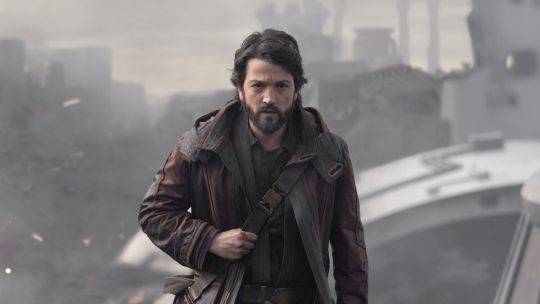
This man who, when pushed into a corner, scraping by and living just outside the law, living his little old sketch life just trying to stay alive and take care of his family, somehow manages to catch the attention of one of the biggest orchestrators behind the galactic-wide Rebellion.
This man who, with no better prospects, reluctantly acquiesces to participating in a massive heist of 80 million Galactic Credits for the Rebellion and then is a major reason why they actually pull it off and one of the only ones to make it out alive.
AND THAT WAS ALL WHEN HE WASN’T FULLY ON BOARD WITH THE REBELLION.
So what about when he’s finally stirred up to really want to rebel himself? When it’s no longer just anti-imperial sentiment but pro-something bigger than himself? Even pro-rebellion?


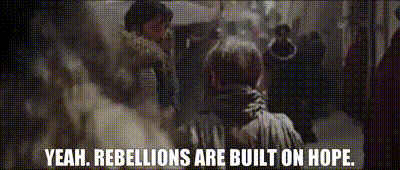
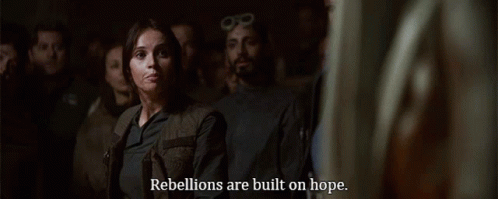
HE’S REALLY JUST OUT HERE DOING WHAT HE’S DOING AND BEING HIMSELF AND SAYING THOSE THOUGHTS AND FEELINGS THAT FINALLY CAME TOGETHER AND THIS JUST—
INSPIRES others to not just come around to supporting the idea of rebelling against the Empire but to give their lives in rebellion against the Empire.
LIKE
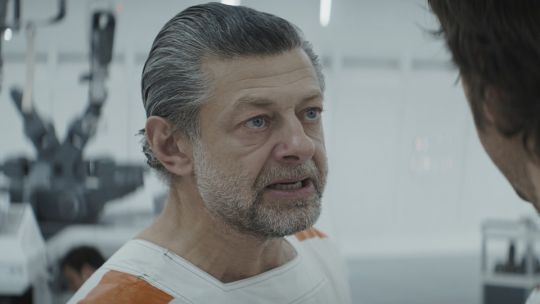
Let’s talk about when Kino Loy meets this unstoppable force for good. Let’s talk about how it drives him from “let’s just finish our shifts” to “let’s break every single one of these 5,000 men out of this Imperial prison.”
Let’s talk about how Cassian leads by example, by existing, by inspiring. Let’s talk about how he reads the dynamics and knows what person he needs on board to get everyone on board.
“Tell them what to do. It has to be you. Come on, Kino. You do this every day. Tell them what to do.” ~ Cassian Andor

Let’s talk about when Jyn meets this unstoppable force for good. Let’s talk about how it’s a major factor of what brings her from “leave me alone and just don’t look up” to “let’s steal the plans for the Death Star even if it’s a suicide mission because the Rebellion and the galaxy needs it.”
Let’s talk about how Cassian doesn’t need to be “the leader” to lead. Let’s talk about how he got an entire squadron of rebels ready and on board for this suicide mission before the council meeting could even finish saying “no.”
Let’s talk about how he couldn’t abide by the lack of action in the face of desperate need, and how he knew who to go to in order to get things done. Let’s talk about how he laid this team before Jyn because it was never about him leading and always about doing it for the Rebellion.
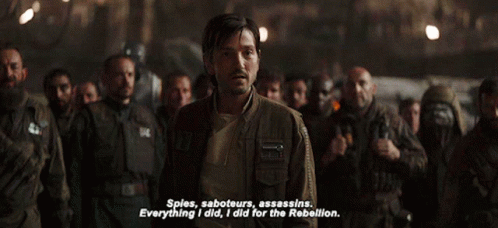
Let’s just talk about what a great kriffing character Cassian Andor is for a second, okay?
#star wars#andor meta#star wars meta#cassian andor#andor show#kino loy#jyn erso#sw andor#I have so many feelings about this character and about this show#UGH WHY IS IT SUCH A MASTERPIECE I LITERALLY CANNOT
402 notes
·
View notes
Text
The funniest part about Andor (and Rogue One) being objectively some of the best made Star Wars media is how Tony Gilroy has said he's not as interested in the Star Wars of it all. He's using an incredibly popular medium to tell a story he finds intriguing. It's hilarious on the Star Wars end (that someone less concerned with the lore of it all makes something this good), but it's also funny because the Andor team, in many ways, has created the most Star Wars content ever.
At its core, Star Wars is a political space adventure. Yes, there's lightsabers, cool battles, cheesy lines, and love stories, but the politics/philosophy/worldview has always provided the substance. The original trilogy is about overthrowing a fascist imperial government. It's about a scrappy group of people who shouldn't even know each other banding together to rebel. The prequels, love them or hate them, are mired in the politics of executive overreach, starting a war for more-than-usual questionable reasons, and the failure of institutions that corrode from within (the Jedi Order and the Galactic Senate). The sequels, again, love them or hate them, are about how history rhymes. In the wake of victory over imperialism, former rebels fail to stop a new fascistic power from forming in the decades after the war. It's about the repetition of mistakes. It's the US invading the Middle East decades after failed, horrofic interference in Vietnam and Korea. It's the current rise of fascism and anti-Semitism in Europe, decades after World War II and the Holocaust.
Maybe sometimes it takes people who have less reverence for a Thing to truly flesh out the best parts of that. Because Andor has gone deeper into the politics than we've ever seen (some themes it's touched on: police brutality, the prison industrial complex, fractured political movements, who suffers the most under a tyrannical system, immigration and displacement, exploitation of people and resources). It's the also most human and grounded Star Wars has ever been, probably because it doesn't have to worry so much about the flashy stuff. Andor has a fully realized message and complicated characters, and it's incredibly captivating.
#andor show#also the acting is insane#and the set design#it's so well made at every level but i think it starts with the philosophy of the show#andor meta#i guess lol#andor#andor series#listen i love lightsabers and the force and all that#but i don't care that those things aren't part of andor#it's too good#my text#my andor meta
343 notes
·
View notes
Text
I’ve been watching the Narkina 5 arc again (for science), and what’s striking me on this, my [redacted] rewatch are all the little ways the show suggests that the prison has actually failed to produce the standardized behavior it claims to achieve. There are so many subtle variations in the “on program” posture, for example: some prisoners with their fingers fully linked, some with their hands barely touching their heads, some with shirts riding up because one size does not actually fit all. The lines they stand in are never quite straight, the work arrangements at each table are always in flux, with positions being rebalanced as people leave or arrive or fall ill.
Of course, the make-shift nature of the revolt in 1.10 will bring all these little ungovernable differences very dramatically to the surface, but I love the way the cracks in the facade of control are there all along. The “program,” as Nemik’s manifesto will suggest, is unnatural. No matter how high they crank the heat on the batons or on the floors, the guards can’t iron away the texture of the lives they attempt to functionalize. And that’s part of why they fail to account for the possibility that just one single wrinkle - one prisoner sent back, one desperate attempt at regaining control, one new guy with a theory of power and some organizing skills - will be enough to create the leak that becomes a flood.
252 notes
·
View notes
Text
I think this shot sums up everything that's so great about andor
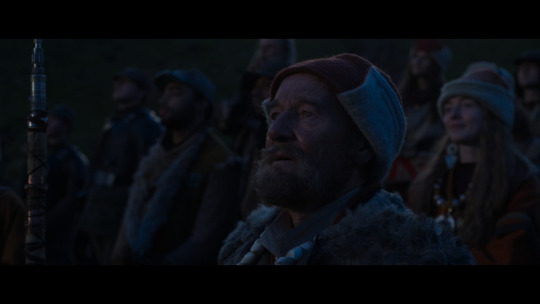
We don't know who any of these people are. they don't have names, most of them don't even speak. They aren't important to the story. and yet, twice, the breakneck pace stalls in the middle of a desperate, tragic action scene, the music quiets, and we get these long shots of people watching the eye. because they do matter. the fight, the rebellion is for them. The characters who die in those fight scenes die for them. for their right to practice their religion, to appreciate the beauty of nature, to live in peace with it and each other.
A worse show could have taken a concept like the eye and used it to boast their cgi budget, make it nothing more than a cool light show. but we already know you can cgi anything. I'm not a toddler, I don't watch media to see pretty colors on a screen. And they are very pretty, but I'm glad we only get a few seconds of the sky, and most of the time, it's just a blurred backround behind characters. instead, we get to watch it through their eyes. We see their reactions, we see them fall silent, and smile, and cry. we see dhanis and imperials stand side by side in peace, even if just for a moment, as they share in the beauty and significance of this event. and that makes it real. makes it worth fighting for.
There are no colors and shapes you could put on a screen beautiful enough to make the audience believe in the importance of a made up celestial event and religious ceremony. We were told about it 2 weeks ago, we can rewind and rewatch it as many times as we want. we have not waited 7 years to see this, we have not climbed mountains to reach it. but these people have. for them, it's real. and through them, it becomes real to us.
232 notes
·
View notes
Text
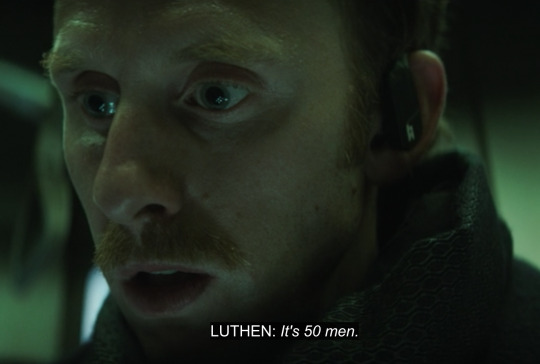

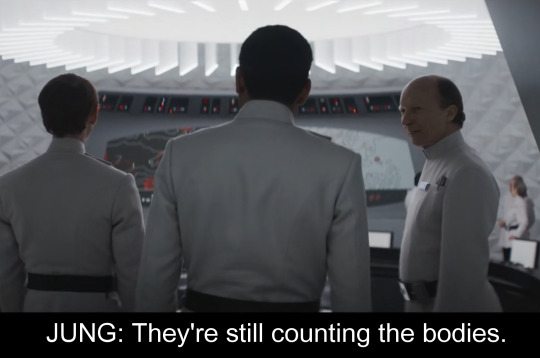
And so we may never know how many men and women were in Anto Kreegyr's team.
In a way it's a bleak reminder that rebel lives are reduced to statistics. Chaff, canon fodder. Not only are their names unknown and forgotten, their exact numbers remain mysterious.
It makes sense of course for Luthen to remain studiously vague and acquiesce to Saw, and inflate numbers for Lonni, who needs to feel his worth and the sacrifice others will be made to endure for his sake.
But at the end of the day Kreegyr's team was sacrificed on the altar of rebellion and we can't even tell how large a sacrifice that was.
198 notes
·
View notes
Text
i don’t want to be overly essentialist or talk outside my cultural lane but... there is something so intensely not anglo-’murican about the way the way andor treats death and it’s so fascinating and refreshing. like on one level this is a show profoundly about death from the very structure of its narrative, but it’s about how you live knowing you will die rather than the glorious death-from-martyrdom-death-as-redemption narrative, and therefor, inversely, about the profound interconnections between the dead and the living and those on the liminal in-between. now we have maarva’s death, and the very introduction of her death comes through the assembled chorus of communal voices who have come to clean her house and take her to rest. (i also love the fact that maarva died, explicitly, of old age and so many of the other related issues. i don’t think you can make the case that the empire *wasn’t* involved because she’s someone so utterly and clearly destroyed by its actions, but i do like that this was a so-called “ordinary” death, because of the thematic purpose that even “ordinary” deaths are heartbreaking and awful and worth remembering.)
andor makes it canon that there are communal aid organizations- i immediately think chevra kadishas! though many cultures have their own organisations and social structures for how to support the grieving and honour the dead- which is just one of the ways it highlights community and the complexity of interpersonal relationships. the daughters of ferrix are introduced an episode earlier, and i realised on a rewatch with my family that the daughter of ferrix - keezy maybe?- introduced at the beginning of the episode is also mentioned by bee in the first episode as being someone who helps maarva with her dinner and medication. we don’t see maarva’s body go alone, we see her transported through the streets by the women of ferrix. andor makes the case of elder care as communal connection and antifascist work, AND that it is done by the same people as those that bury the dead. and the way that andor is building up t having the season finale be the funeral, the thing that drags cassian home and into the line of fire being his mother’s funeral, the storytelling possible about funerary customs and memorialisation as acts of cultural resistance and aggressive rehumanisation... i’m too verklempt to say much more but i think the way this thematic arc is so intertwined with cassian’s time in narkina 5 and the scene with him and melshi at the end of the episode like! no one is lovingly honouring every one of those men with two-day funeral ceremonies through the streets. NO ONE remembers but cassian and melshi. two episodes earlier ulaf died, but the closest thing he had to the daughters of ferrix was the doctor, the fellow prisoner, who refused to learn his name and quietly euthanised him in the hallway. until we know more there were nearly five thousand other deaths. and the episode ends with melshi saying, it’s our duty as survivors to carry the weight of memory so that other people will know and remember this. they are also carrying the weight of mourning those whose time it was not to die. fuck. this show guys. it has me
#andor#andor spoilers#andor meta#my experience of funerary stuff is very much in the pinoy/irish/jewish nexus so i'd love to hear other thoughts#but damn this hit deep cored me the Ethnic ness of it all really#maarva andor#melshi's speech as very similar to many jewish rememberences of the shoah too like fuck. we REMEMBER#we force you to remember we are always remembering we are always surviving#cassian andor#ruescott melshi#not being latine i don't want to say something *broad* about entire diverse cultures' conceptions of death but i WAs reading#octavio paz's essay on day of the dead and death and yeah.yeah. many many manyyyy thoughts
1K notes
·
View notes
Text
Andor portrays the evil of fascism in such a mundane way.
No villages get burned down, no planets destroyed by big lasers.
Instead it’s families torn apart by incarceration. Permits being denied for the funeral of a community leader. “he says it like it is.” Power-tripping cops on a shakedown. The shepherds don’t get torched like Owen and Beru, they get forced to labor for capital. The civilizing weight of banal industrialization.
Fascism isn’t bombastic spectacle in this show. It’s just fucking boring.
297 notes
·
View notes
Text
Some people interpret Mon Mothma’s shock and disapproval of Luthen’s Aldhani heist as her rejecting violent rebellion and still hoping for a peaceful political resolution. To me, that’s a fundamental misread of her ideology.
Mon Mothma knows that she’s funding armed rebels via Luthen, she’s just more cautious than him on a timeline of how the rebellion should proceed. She doesn’t believe the rebellion is ready for open war, and in her mind, Aldhani is an unnecessary risk that exposes the fragile network of rebels to the Empire before it’s grown large enough to survive.
Mon Mothma is literally committing treason as a sitting Senator, she’s no pacifist or centrist. Why would she risk her life like that? Because she’s come to the conclusion that Emperor Palpatine will never voluntarily give up power, and the Senate will never ask him to. He and his regime must be overthrown by force.
The most preferable outcome is a relatively bloodless coup. However, that requires strategically positioned assets both within and outside the regime to coordinate a surgical operation that quickly kills or imprisons Imperial leadership before it can activate its superior military forces. The nascent and fractured rebel alliance is nowhere near that capability.
This aligns with a huge theme of Andor, namely its focus on bureaucratic capacity and military operations. Ideology and belief are not enough to maintain a government (or to overthrow it). Actual people on the ground, communication and organizational structures, and ability to secure funding are crucial. We see this when Dedra emphasizes the importance of cross-sector data analysis and every time Andor shows us lowly desk workers or foot soldiers.
If a coup is impossible, plunging the galaxy into civil war could radicalize more into supporting the rebel cause, but at the cost of trillions of deaths and untold suffering. Luthen is an accelerationist who believes Imperial oppression should be provoked into intensifying to destabilize and ultimately abolish it. Mon Mothma calculates differently and wishes to minimize harm caused by the rebellion, even if it takes longer, via a coup or at least a shorter war. However, both agree that violent force is necessary.
165 notes
·
View notes